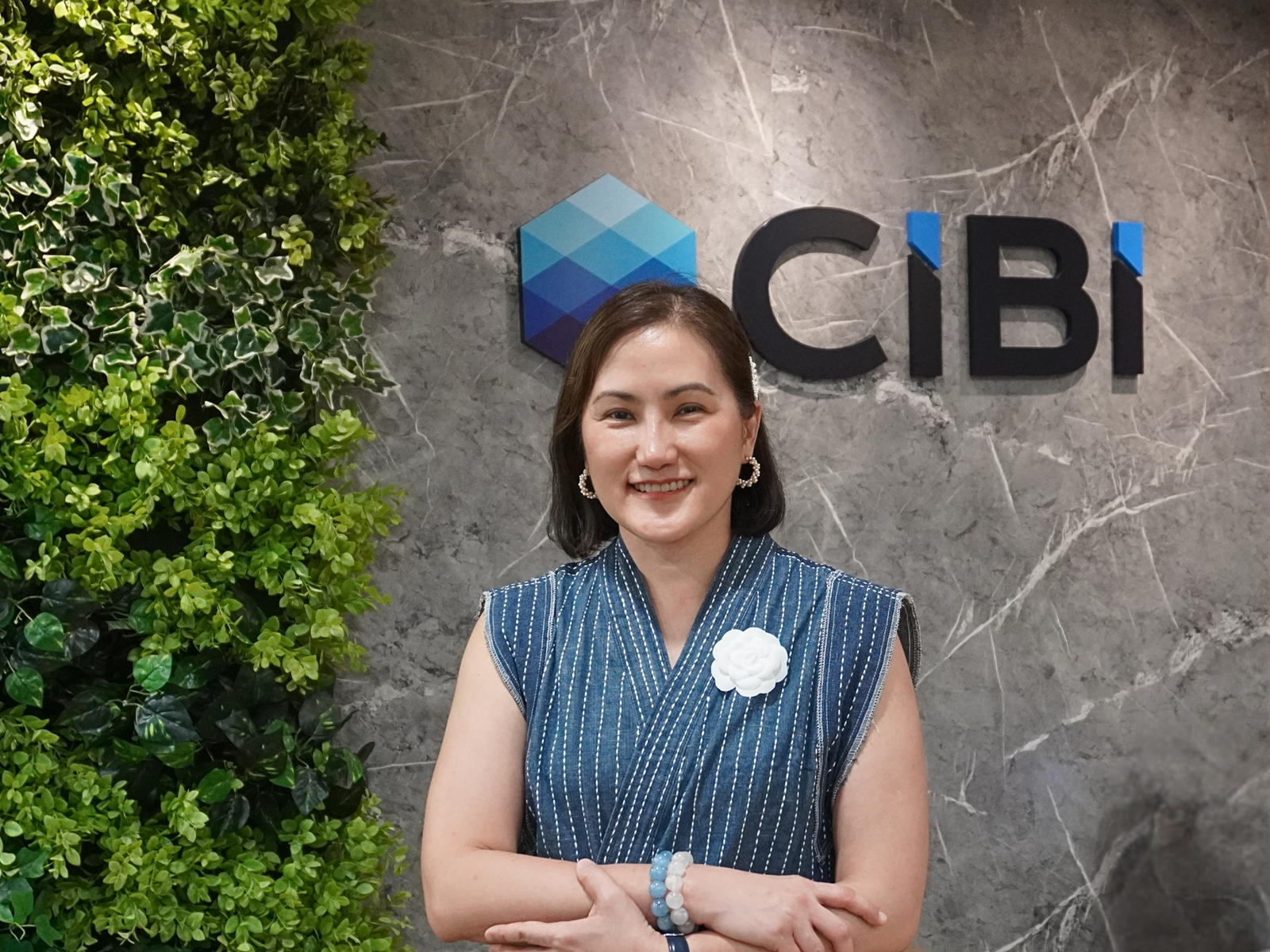In a nation where the word “utang” (credit) often conjures images of financial distress, a deep-seated perception of credit as a “debt trap” (a burden) continues to shackle Filipinos, preventing them from seizing vital opportunities for economic advancement and upward mobility. But a leading advocate for financial inclusion is directly challenging this narrative, urging a paradigm shift in how Filipinos view and utilize credit.
According to Ms. Edith “Eds” Roberto, Head of Individual Credit Solutions Products and Partnerships at CIBI Information Inc. (CIBI), the pervasive apprehension towards debt in the Philippines is deeply rooted in a blend of economic instability, limited financial literacy, and a subtle yet powerful cultural bias.

Edith “Eds” Roberto, Head of Individual Credit Solutions Products and Partnerships at CIBI
The cultural roots of debt apprehension
“In an unstable economy, jobs and income are not guaranteed, making debt inherently risky for lenders, which often translates to higher interest rates for borrowers,” Ms. Roberto explained. This risk is further compounded by a critical knowledge gap, as most borrowers often don’t fully understand loan terms, leading to poor financial decisions and over-borrowing.
“Culturally,” she added, “Filipinos frequently associate utang with irresponsible behavior and desperation.” However, Ms. Roberto contends that by fixating solely on the pitfalls, countless Filipinos often overlook credit’s transformative power when managed responsibly. “As long as it is responsibly handled, debt can significantly improve one’s quality of life,” she asserts. This vital assistance can fund education, enable homeownership, kickstart a business, or even support essential needs like acquiring a car to ease daily commutes.
A significant hurdle in leveraging credit for growth, Ms. Roberto identifies, is a profound lack of awareness regarding various credit products beyond the omnipresent credit card. “Consumers are often unaware of business loans or home loans,” she stated. Crucially, many also overlook the direct link between responsible credit handling and a strong credit score — the key to unlocking lower, personalized interest rates. “Many consumers still believe ‘cash is king’ and thus fail to build a crucial financial footprint for themselves,” she lamented.
This is precisely where CIBI’s platforms are poised to revolutionize access and understanding. CIBI is currently enhancing its CIBI portal, transforming it into a seamless, intuitive gateway for clients to access credit solutions. While historically focused on B2B services, the revitalized portal will increasingly cater to individual consumers, providing direct access to their personal credit scores.

Ms. Roberto emphasizes that while a credit score alone won’t instantly reshape borrowing perceptions, it serves a critical purpose: to “make consumers aware that these are part of a formal lending ecosystem and hopefully veer them away from informal predatory lenders.”
In this transparent, formal environment, credit scores become tangible indicators of financial responsibility, directly influencing the cost of borrowing. “This, in turn, can encourage borrowers to hopefully learn more about credit handling. Platforms like CIBI often include credit education tidbits, fostering greater financial literacy and trust in the formal financial system,” she noted.
For consumers, accessing their own credit score involves a fee, unlike some countries where limited free reports are available. However, CIBI is committed to keeping this fee accessible. The true value, Ms. Roberto stresses, lies in proactive understanding. “Instead of spending hours going to the bank, then they tell you you’re not approved because you lack certain requirements,” individuals can now proactively assess their own performance.
CIBI’s credit reports go beyond mere numbers, offering crucial context and actionable advice. “When you avail of the credit report, there’s also some context that we add to it,” Ms. Roberto clarifies. For instance, a low score might be explained by late payments or too many recent loan applications, as frequent loans can signal financial distress and negatively impact one’s rating. The core message, she powerfully states, is empowerment: “You are empowered to control your score. It’s entirely controllable by yourself.”
Credit as an economic catalyst

Beyond individual empowerment, Ms. Roberto envisions profound societal benefits from widespread, well-managed credit access.
“If a society has access to credit, its people can borrow to pay for education,” she posited, directly linking this to a “well-educated population that leads to better employment.” Equally vital, accessible credit emboldens “innovators and entrepreneurs to embark on businesses,” generating jobs, stimulating spending, and ultimately fostering overall economic growth.
This empowerment also serves a crucial societal purpose by “decreasing reliance on abusive lending and leading to financial inclusion since consumers will be part of the formal financial system.”
CIBI is committed to continually enhancing its technological innovations to deliver accessible data solutions and products, always aligning with its overarching vision of financial inclusion.
This means transforming raw financial data into valuable insights for clients, enabling lenders to make intelligent decisions, deepen relationships with responsible borrowers through increased limits or lower interest rates, and ultimately benefit consumers with more affordable and fair financing, safeguarding them from overwhelming debt.
CIBI’s credit reports also go beyond mere numbers, offering crucial context and actionable advice.
“When you avail of the credit report, there’s also some context that we add to it,” Ms. Roberto clarifies. For instance, a low score might be explained by late payments or too many recent loan applications, as frequent loans can signal financial distress and negatively impact one’s rating.
The core message, she powerfully states, is empowerment: “You are empowered to control your score. It’s entirely controllable by yourself.”
CIBI: Empowering credit scores and forging alliances

Despite its immense potential, credit misuse remains a critical concern. Ms. Roberto points to common pitfalls: “poor budgeting, lack of proactive financial planning, reliance on informal lenders, and living paycheck to paycheck.”
To move beyond mere awareness, she advocates for a fundamental shift starting with “including financial education in grade school curriculum, similar to Japan.” The core message, she believes, is the “importance of savings. If you have savings, borrowing will be more productive and more of an enabler for something greater, instead of borrowing to tide one over just an emergency event.”
CIBI is actively championing this through educational campaigns and strategic partnerships. They collaborate with organizations that share their financial inclusion vision, targeting trade associations and other financial institutions. These alliances facilitate data sharing, enriching existing information to develop more customized and beneficial credit products.
A testament to this is the planned webinar in July this year for IT and BPO employees, which is specifically designed to educate young professionals on improving their credit standing.
Looking ahead, Ms. Roberto is optimistic about the evolving trends in the Philippine financial landscape. “The rise of digital loan services from fintech firms, online access to individual credit scores for consumers, and the growing interest in SME lending are transforming the financial landscape by driving financial inclusion,” she highlighted.
However, she also underscored that these promising developments must be “balanced with oversight to uphold strict lending standards and to protect consumers, as well as schools along with financial institutions providing responsible credit education.” To move beyond mere awareness, she advocates for a fundamental shift starting with “including financial education in grade school curriculum, similar to Japan.”
Edith Roberto: A legacy forging financial futures

CIBI’s Edith “Eds” Roberto is at the forefront of this movement, helping financial institutions prevent fraud, assess creditworthiness, and verify customer identity for individuals and businesses.
With a career spanning over three decades in the credit card and payments industry, Ms. Roberto brings with her unparalleled expertise in customer acquisition, lifecycle management, and usage campaigns — all vital cogs in a robust financial ecosystem. Her insights are proving invaluable in navigating the complex financial landscape, promoting responsible practices, and safeguarding consumers.
Roberto’s deep commitment to financial security is vividly illustrated in her support of CIBI’s groundbreaking Fraud Bureau, launched on March 12, 2025. Heralded as a “game-changing initiative,” the Bureau directly confronts the escalating threat of financial fraud. It champions real-time intelligence sharing and industry-wide collaboration among banks, fintech firms, and other financial institutions.
This proactive approach to fraud prevention, shifting from reactive damage control to a “shared defense,” not only fortifies the financial system but also educates both the public and institutions on the critical need for vigilance and cooperation.
Ms. Roberto underscores that her extensive experience has instilled in her an “in-depth, holistic understanding that credit or data-driven strategies can shape and even influence the landscape.”
Her decision to join CIBI was driven by a desire to “give back” by actively influencing the financial system, particularly by bridging the divide between credit providers and consumers. This means empowering consumers through education, enabling them to “take stock and take control of their financial behavior.”

Creador’s significant stake in CTOS, Malaysia’s largest credit bureau, further bolsters CIBI’s mission by integrating international best practices into the local market.
CIBI, a pivotal player in the Philippine financial landscape, boasts a 43-year legacy. Established in 1982, it was privatized in 1995 and now thrives under the Creador umbrella. Creador, a prominent private equity firm in South and Southeast Asia, focuses on investing in growth companies, with a portfolio that includes names like “Dali” and “Angkas.”
Edith Roberto’s insights deliver a powerful and urgent message: Credit, when understood and managed responsibly, is not a trap but a dynamic tool for individual empowerment and national progress. Her work with CIBI is actively paving the way for a more financially literate, inclusive, and empowered Philippines.
The core message, she believes, is the “importance of savings. If you have savings, borrowing will be more productive and more of an enabler for something greater, instead of borrowing to tide one over just an emergency event.”
Edith Roberto’s insights deliver a powerful and urgent message: Credit, when understood and managed responsibly, is not a trap but a dynamic tool for individual empowerment and national progress. Her work with CIBI is actively paving the way for a more financially literate, inclusive, and empowered Philippines.








